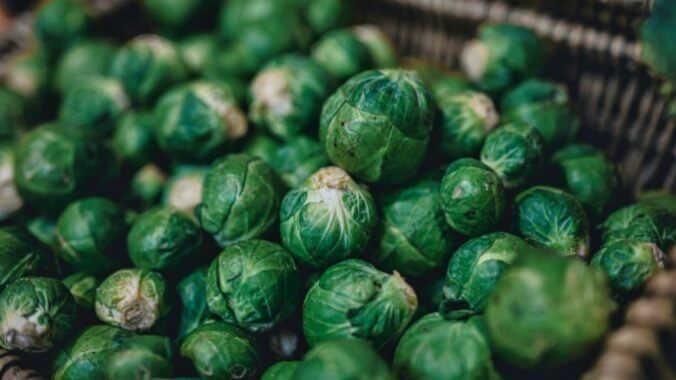There’s a Reason You Like Brussels Sprouts Now More Than You Did As a Kid
Photo by Jez Timms/Unsplash
As a ‘90s kid, I’ve been subjected to some questionable food trends. Somehow, we all thought sugary cereal constituted a decent breakfast, and Lunchables were considered a downright gourmet meal. I will never forget the Toaster Strudel-induced sugar rush I would get at 7 a.m. before I caught the bus to school; I can’t help but to think the effects must have been at least somewhat comparable to the attention-enhancing pharmaceuticals much of my generation was force-fed to get them through the school day.
But there was one food that seemingly everyone was vehemently against at the time: Brussels sprouts. It seemed to be a running joke that Brussels sprouts were disgusting, and every media depiction of the vegetable framed it as something you’d never want on your plate. Occasionally, my mom would cook Brussels sprouts by steaming them in a plastic bag with some herby butter, but it was an exercise in futility; they would go nearly untouched on everyone’s plates and ultimately end up in the trash by the end of the night.
Times have changed. It now seems like every trendy restaurant has Brussels sprouts on the menu. You’ll find Brussels sprouts crisped and fried, sauteed in a gochujang-miso sauce and doused in obscene mountains of cheese. Of course, a growing interest in healthy eating is probably partially to thank for Brussels sprouts’ recent success (as it turns out, soggy Lean Cuisines aren’t that great for us after all). But there’s more to the story than consumers’ desire to lead healthier lifestyles. These days, Brussels sprouts actually taste much different than they once did.
In the early ‘90s, Dutch scientists experimenting with the vegetable discovered why Brussels sprouts tasted so bitter: It’s all thanks to compounds called glucosinolates. These compounds actually serve as a defense mechanism for the plant, as insects are less likely to snack on the plants if they have a strong, unpleasant taste. Once these compounds were discovered, though, scientists were able to selectively breed the plants to have less of those markedly bitter compounds. They then found ways to breed these less-bitter sprouts to ensure they would guarantee high yields, and the new age of Brussels sprouts was born. The vast majority of Brussels sprouts grown today are considerably less bitter than the Brussels sprouts millennials and older generations ate as kids.
- Curated Home Page Articles By Test Admin October 21, 2025 | 3:10pm
-

- Curated Home Page Articles By Test Admin October 21, 2025 | 2:57pm
- Urls By Test Admin October 21, 2025 | 2:57pm
- Curated Home Page Articles By Test Admin October 21, 2025 | 2:55pm
-

-

-

-

-

-

-

-

-

-

-

-

-

-

-

-

-

-

-

-

-

-

-

-

-

-

-

-

-

-

-

-

-

-

-




































